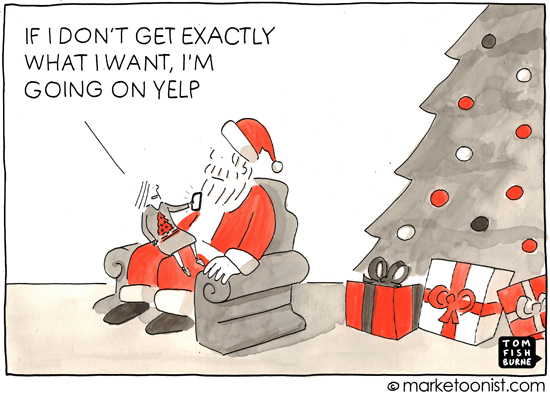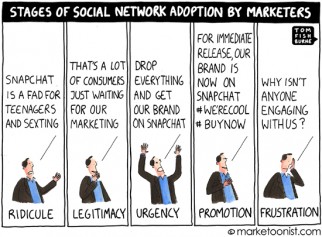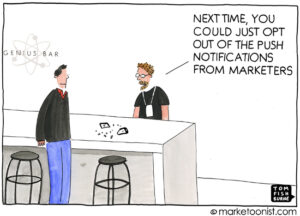Santa’s not the only one who keeps a list of naughty and nice. We live in the age of consumer empowerment. Consumers can instantly share feedback on a meal at Yelp, a plumber at Angie’s List, even an ex-boyfriend at Lulu. A Harvard Business School study showed that a one-star increase in Yelp leads to a 5 to 9 percent increase in revenue for restaurants. I stayed a hotel recently where the manager literally pleaded with me to leave a five-star review on TripAdvisor.
That means that we also live in the age of consumer entitlement. Everyone’s a critic, literally and with a megaphone. Consumer expectations have never been higher. Grudge reviews rise to the top of Yelp profiles, meaning that one bad experience can do serious damage to a brand’s reputation.
Like it or not, marketers today have to grapple with the effect of online reviews, as I wrote in September. Every product or service now carries a public feedback loop. Granted, not all reviews are fair and warranted. Much of the feedback seems driven by public retribution. Some brands accuse Yelp of biasing which reviews show up based on whether a business advertises. But online reviews are here to stay. If Yelp or Angie’s List didn’t exist, there would be something else. Consumers have always shared feedback on brands. They just didn’t have the platform to share them publicly.
Overall, the online review phenomenon puts the impetus on marketers to pay more attention to their product or service experience (and less trumpeting their features and benefits). That’s a good thing, ultimately, for consumers and marketers.
I’d love to hear examples of how marketers are monitoring and engaging with online reviews.
(Marketoonist Monday: I’m giving away a signed print of this week’s cartoon. Just share an insightful comment to this week’s post by 5:00 PST on Monday. Thanks!)



Ralph says
Great post Tom, this is absolutely true.
But still it’s funny most reviews are in a B2C relation, B2B is seems like time stood still. We’ve recently started using a new platform (www.starred.com) to measure satisfaction with our B2B contacts. This continuous feedbackloop shows interesting insights to optimize our performance.
And the comments in a B2B relation are much more constructive than in a B2C relation we’ve noticed 😉
sheila says
At http://www.iens.nl (a dutch restaurant review site) there is now a possibility for the owner / chef to react to the comment of the customer. That puts the right balance in my view. It was a bit one-sided and sometimes….. customers make mistakes or behave badly too 🙂
Allen Roberts says
Says it all.
Merry Christmas Tom.
Allen
Brenda says
I agree with Sheila. There needs to be balance to drive credibility.
The cartoon is so funny! 🙂